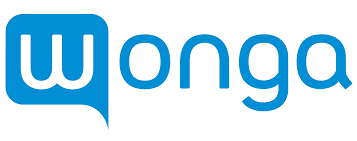According to a consumer spending survey conducted with almost 5 000 people in July this year by short-term lender Wonga, South Africans are cutting back on food and groceries in order to keep paying for other costs such as medical aid. The survey further revealed that private medical care is a luxury that many cannot afford, with only 16% of respondents listing medical aid as a monthly cost.
Since the beginning of October, there have been reports of a number of medical aid companies increasing their tariffs for 2025, with percentage increases significantly higher than previous years.
BestMed has recently announced a 12.75% increase in average contributions for next year, Medihelp has applied for an increase of 10.8%, and South Africa’s second-largest private medical scheme, Bonitas, wants to raise its premiums by 10.2% in 2025. These increases will all come into effect on 1 January.
“With healthcare costs rising, South Africans need to be more disciplined about their finances,” says James Williams, Head of Marketing at Wonga. “The upcoming medical aid price hikes could cause strain for many households, especially when combined with seasonal expenses during the summer vacation period. It is important for people to budget carefully during the festive season in order to prepare for increases such as these in January.”
Medical schemes have cited rising healthcare costs and medical inflation as key reasons for the increases. While the Council of Medical Schemes (CMS) recommended a 4.4% hike, many schemes are opting for increases that far exceed this guideline.
As the CMS noted, salaries in South Africa are projected to rise by only 6%, making it increasingly difficult for consumers to keep up with healthcare expenses that have surged at double the inflation rate. This widening gap puts added pressure on households as they navigate both everyday expenses and escalated medical aid contributions.
“Our recent survey showed that medical aid is one of the top three of an individual’s largest expenses,” Williams adds. “It is important for everyone to be aware of how these hikes could affect their overall budget, and prioritise their needs.”
“Setting and following a monthly budget can help keep you on track and regain your sense of control,” he explains. “If you are having trouble covering your expenses each month, it can help to identify where your money goes first and priorities accordingly.”
The cost of living crisis in South Africa has been a rollercoaster ride for individuals, with high inflation and interest rates forcing many households into reprioritising their spending each month. The second half of 2024 has seen the first interest rate cut in four years in September, with another one predicted in November. This month is the fifth consecutive cut in the fuel price for this year, bringing more relief on the inflation front.
“We highly recommend that the little that people can save from these cuts, are put aside meet the upcoming increases in medical aid tariffs expected in the new year,” concludes Williams. “Review your household budgets and stick to them to avoid shortfalls and negative financial pressure.”

